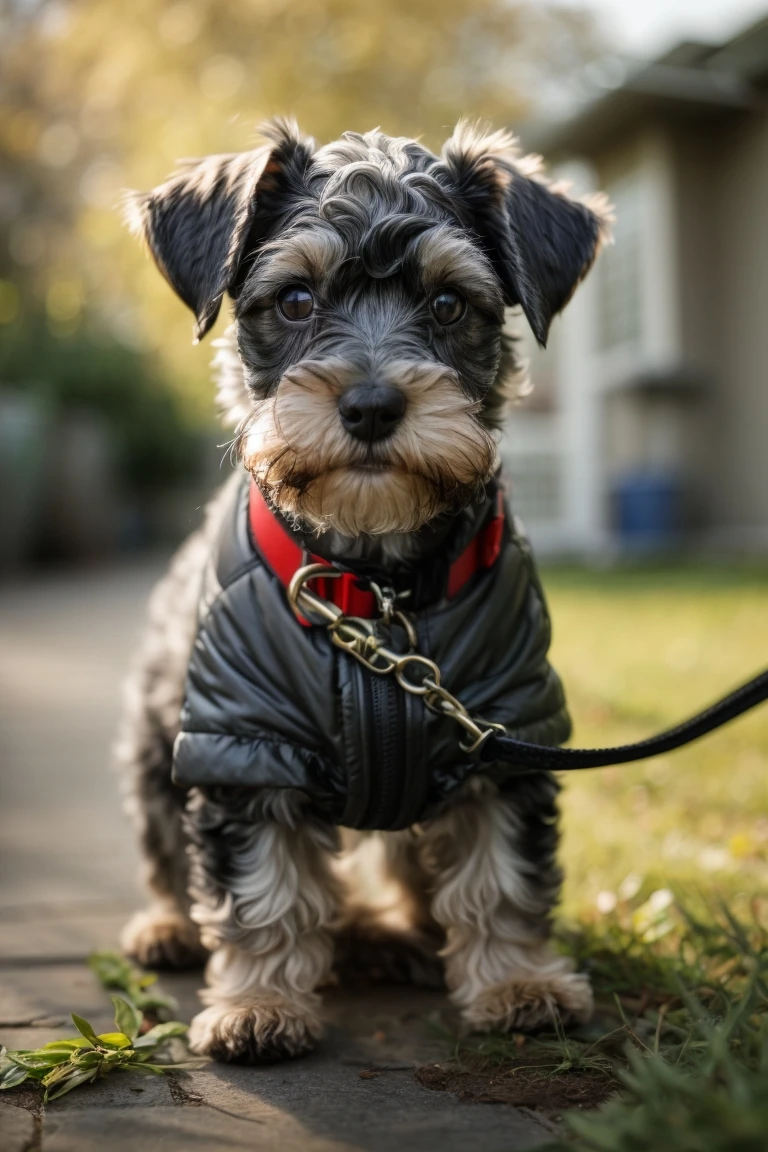Potty Training Miniature Schnauzer Puppies: A Step-by-Step Guide

Miniature Schnauzers are energetic, intelligent, and fiercely loyal companions. They're also one of the most charming breeds, making them excellent family pets. However, when it comes to potty training, they can present a unique set of challenges.
This guide is tailored to help you navigate through the potty training phase for your miniature schnauzer puppy. Broken down step-by-step, you'll find valuable tips, common problems, and troubleshooting advice to ensure a smoother experience for both you and your puppy.
Preparation
Before diving into the actual training process, it's essential to be adequately prepared. Here's what you'll need:
- Designated Potty Area: Choose a specific location outside where you'd like your puppy to do their business.
- Crate: Crates play a vital role in potty training as they utilize a dog's natural instinct not to soil their sleeping area.
- Potty Pads: Useful for indoor training or as a backup.
- Cleaning Supplies: Accidents will happen. Ensure you have pet-safe cleaning supplies on hand.
- Treats: For rewarding your pup when they get it right!
Step-by-Step Guide
1. Establish a Routine
Dogs thrive on routine. Set a schedule for meals, playtime, and potty breaks.
- Morning: Take them out first thing in the morning.
- After Meals: About 20-30 minutes after they eat.
- Playtime: After any vigorous play session.
- Naps: Once they wake up.
- Evening: Before bedtime.
2. Utilize the Crate
If you're using a crate:
- Choose the Right Size: Your pup should have enough space to stand up, turn around, and lie down comfortably.
- Crate Duration: Puppies can't hold their bladders for long. Here's a guideline:
| Puppy's Age | Maximum Crate Time |
|---|---|
| 2 months | 2 hours |
| 3 months | 3 hours |
| 4 months | 4 hours |
| 5 months | 5 hours |
NOTE: Accidents in the Crate: If your puppy has an accident in the crate, it might be too big. Consider adjusting the size or reducing the time they spend inside.
3. Watch for Signs
Most puppies will display certain behaviors when they need to go:
- Sniffing the ground
- Circling
- Whining
- Restlessness
When you notice these, take your puppy to the designated area immediately.
4. Designated Potty Area
Always bring your puppy to the same spot. Their scent will prompt them to go.
- Lead Them: Use a leash to guide them to the spot.
- Use a Command: Use phrases like "go potty" or "do your business". Be consistent.
- Celebrate & Reward: Once they've done their business, praise them and give a treat.
5. Deal with Accidents Calmly
If your puppy has an accident indoors:
- Interrupt Gently: If you catch them in the act, interrupt with a gentle "uh-oh" and take them outside.
- Clean Thoroughly: Use an enzymatic cleaner to break down the scent to ensure they don't return to the same spot.
6. Gradual Independence
As your puppy gets better:
- Increase Freedom: Allow more time outside the crate.
- Reduce Potty Breaks: Gradually extend the time between breaks.
Common Problems & Troubleshooting
1. Frequent Accidents
- Medical Issues: If accidents are frequent, consult a vet. It could be a urinary tract infection or other medical issues.
- Too Much Freedom: Limit their access to the house. Use baby gates or playpens.
2. Refusal to Go Outside
- Bad Weather: Miniature Schnauzers can be sensitive to rain and cold. You might need to use potty pads during adverse weather.
- Fear or Distraction: If they seem scared or too distracted outside, it might help to spend more time outdoors playing and making positive associations.
3. Going Potty Immediately After Coming Inside
This can be a sign of distraction or discomfort outside. Ensure the outdoor environment is calm and free from distractions. Stick to a routine, and they'll soon get the hang of it.
4. Eating Poop
Known as coprophagia, some dogs eat their poop. It can be due to:
- Dietary deficiencies: Ensure they have a balanced diet.
- Boredom: Increase playtime and mental stimulation.
- Avoidance: They might be trying to "clean up" to avoid punishment. Always handle accidents calmly.
Potty training is a journey that requires patience, consistency, and understanding. Remember that every puppy is unique. While one might get the hang of it within a few weeks, others might take longer. Celebrate small victories, remain patient during setbacks, and soon, you'll have a perfectly potty-trained Miniature Schnauzer by your side!